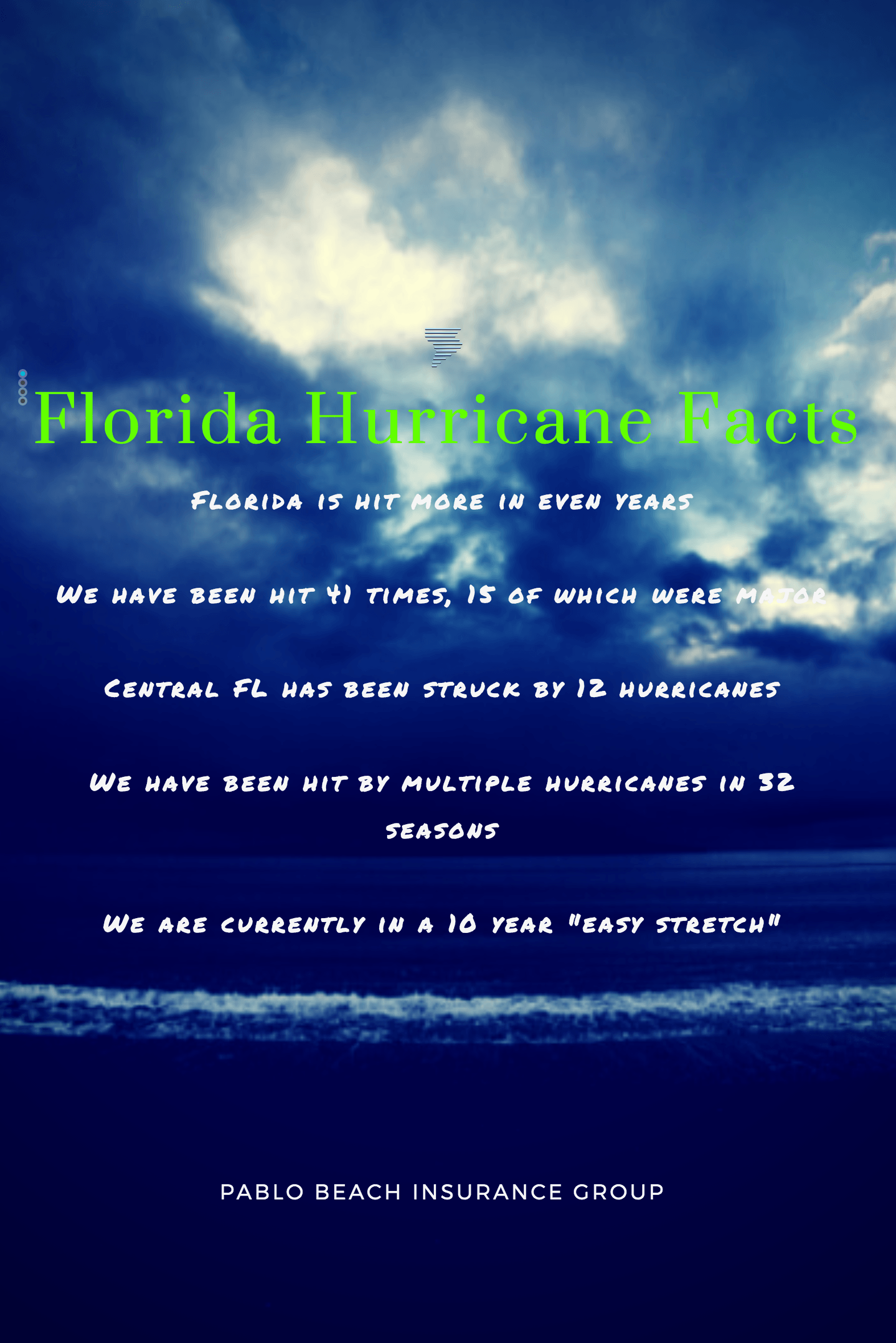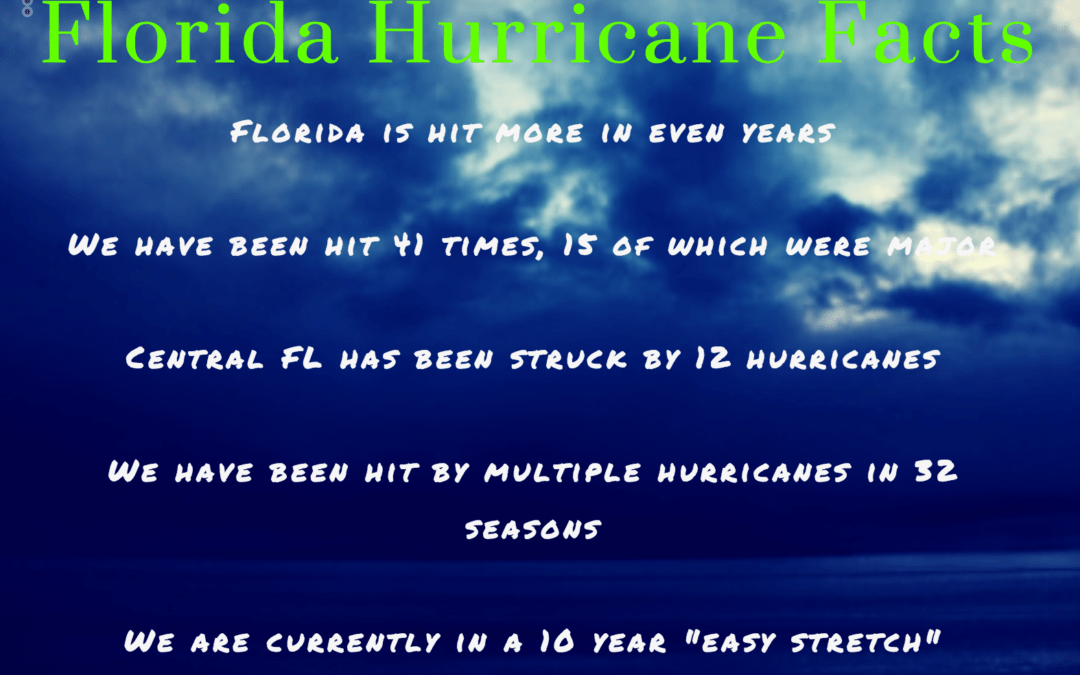As we’ve been discussing all season, hurricanes are an obvious natural threat that we must deal with as Florida residents. Hurricanes are a time when risk management solutions pay for themselves in both money and peace of mind. While we are currently enjoying a 10-year draught of storm landfalls here, as well as a very quiet tropical storm season, we know “it only takes one”.
Let’s look at some lesser know storm and Florida hurricane facts.
They Are Nothing to Mess With!
When a storm is approaching, it’s important to know the true impact these storms can have. The heaviest rains and strongest winds take place in the eye wall, and slow moving hurricanes produce more rainfall and can cause more damage from flooding than faster-moving storms.
Hurricane Season
The hurricane season in the Atlantic Ocean basin (including the Gulf of Mexico and Caribbean Sea) runs from June 1 through Nov. 30.
Random Facts*
- A single hurricane stirs up millions of miles of air and can dump more than 2.4 trillion gallons (9 trillion liters) of rain a day.
- Hurricane-generated waves frequently toss tons of fish onto beaches. The eyes of many of the fish have popped out because of sudden changes in pressure.
- Christopher Columbus wrote the first known report of a hurricane in 1495
- Each year, approximately 10 tropical storms form over the Atlantic Ocean, Caribbean Sea, and Gulf of Mexico. Out of these, six become hurricanes.
- A hurricane warning is issued when a hurricane is expected to arrive within 24 hours. A hurricane watch is issued when the storm is 24-36 hours away.
Florida Hurricane Safety Tips
- Make sure you comply with all local and state evacuation warnings and instructions
- Move away from flood zones and get to higher ground if possible
- With enough time, evacuate to a region not predicted to be in the direct path of the storm
- After the 2004 season, the State of Florida painted all exit numbers on the road in case storm winds blow the highway signs down. This will help you return home safely after a major storm
- Have a proper plan in place for before, during and after a storm
Florida Hurricane Facts

*Stats credit http://facts.randomhistory.com/hurricane-facts.html

